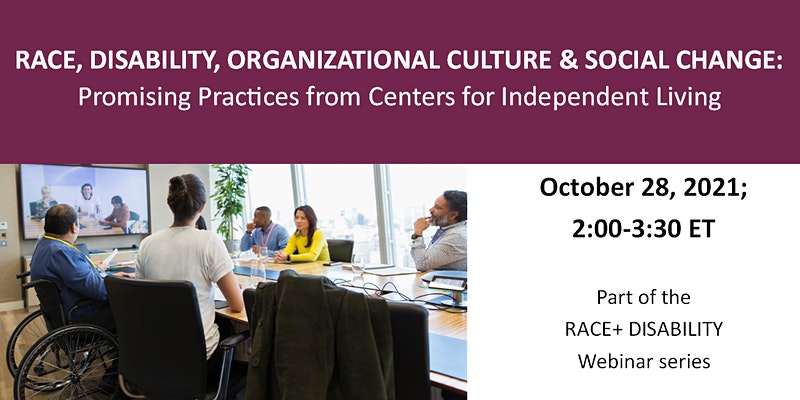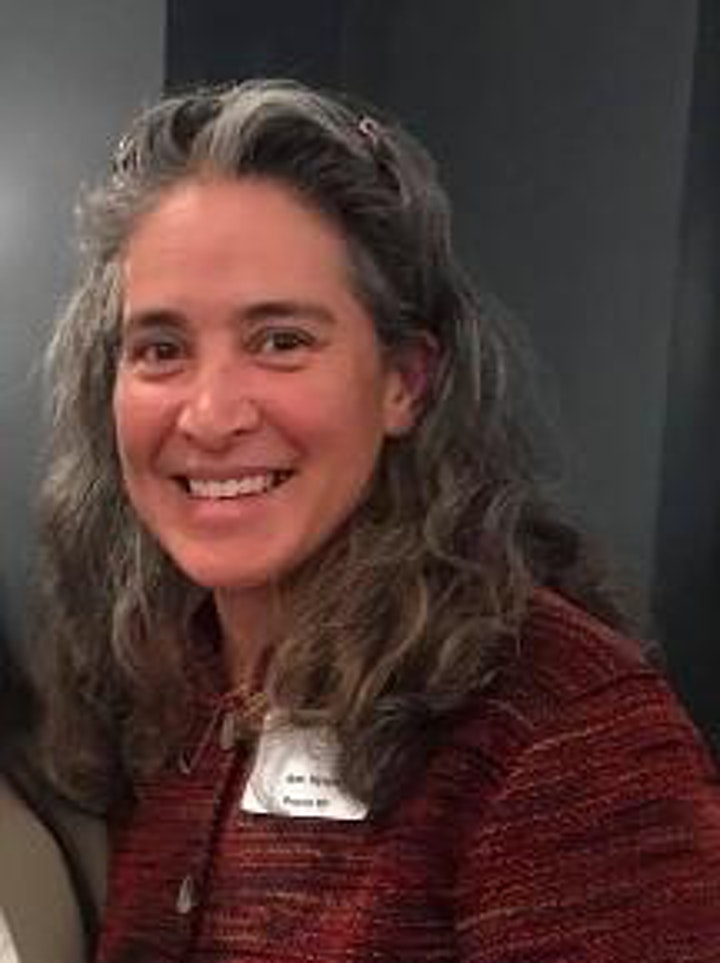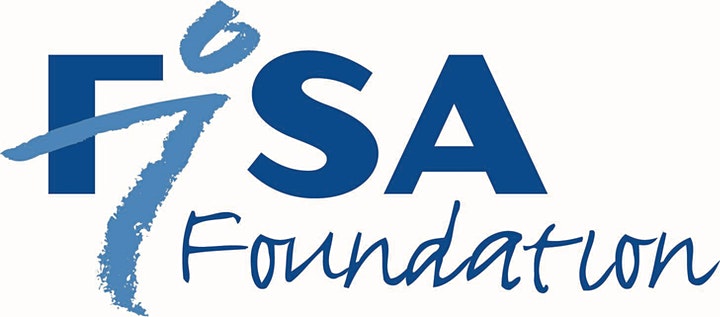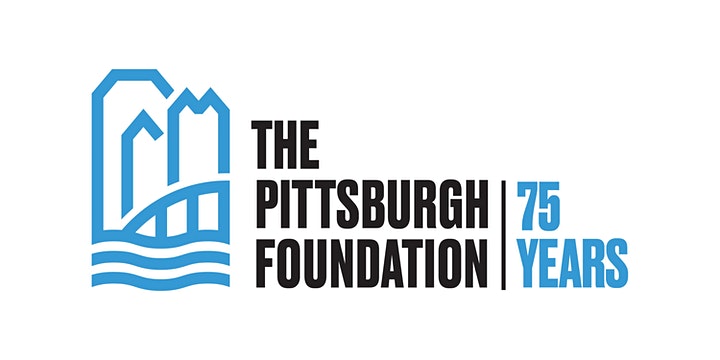We as the NCIL Diversity Committee would like to assure to our membership that we understand and are committed to continuing our efforts to bringing intersectionality and diversity together. This will allow people who are not often seen or heard, because of underrepresentation, to have the opportunity to be at the table. This includes reaching out and connecting to the youth to hear what they have to say because their voices matter, and they are the future of this movement. The NCIL Diversity Committee is dedicated to the work that will not just benefit our organization but will benefit the disability community as a whole and future generations to come.
[Read more…]Disability Justice
NCIL Statement on its Ongoing Commitment to Racial Equity
In the days following the state murder of George Floyd, organizations across the world issued statements. Statements were their way to show they cared about the issue of police violence. They were statements of solidarity. Statements of sympathy. Statements of support. By May of 2020, the National Council on Independent Living (NCIL) had been working on racial equity issues for a year. The board started their work with an equity and inclusion consultant in October 2019. In June 2020, the NCIL Board issued our own statement. The NCIL statement was a commitment to continuing the work of examining our own operations at all levels to incorporate anti-racism into our advocacy. NCIL also committed to lead in including racial equity into disability advocacy.
Just a year after this commitment, the NCIL board hired Reyma McCoy McDeid. Reyma is the first disabled Black woman to lead a national disability-run organization. The decision to hire her should not have been surprising. Reyma brings impressive credentials to the position. Reyma has a history of effective work in disability service and advocacy spaces. What the board did not appreciate, even with the racial equity work that had been undertaken, was how the organization would be required to confront implicit bias as our members, our partners, and the larger community interacted with NCIL under the leadership of a Black woman.
NCIL is no stranger to the struggle in addressing structural bias. Indeed, challenging ableism has demanded a dogged commitment, holding friends, allies, providers, and opponents accountable for removing barriers and addressing outdated thinking about disabilities and people with disabilities. It has meant challenging others’ unconscious bias. Unconscious bias is when he hold beliefs that we do not realize make up part of our thinking. It is important to challenge unconscious bias because that thinking limits our potential as much as physical barriers in the environment does.
NCIL has made the commitment to challenge our own bias, unconscious and otherwise, when it comes to issues related to race. NCIL has committed to bringing the energy and intensity we have used to move disability rights forward to create accountability inside and outside our movement for the ways that Black and brown people of color are perceived, treated, and excluded. We will no more allow people to accuse the organization or the leadership of the organization of “playing the race card” than we have allowed others to accuse us of using our disabilities to get “special treatment.”
NCIL is pleased to be joined in the commitment to disability justice by allies in the movement. The willingness of partner organizations to take up this work has been encouraging.
Centene shares in NCIL’s commitment to disability justice. Centene recognizes that our nationwide network of members is critically impacted as structural bias based on disability, race, gender identity or sexual orientation ties directly to health and well-being. We appreciate the leadership NCIL is showing by embracing equity in all its forms.
– Rick Fredrickson, Centene Corporation, St. Louis, Missouri
CILs around the country have embraced NCIL’s leadership in advancing the conversation and supporting the work of promoting equity in all areas.
NCIL’s courage in calling out racial bias in disability spaces has placed it apart from other organizations. With Reyma McCoy McDeid’s leadership, the disability rights movement is progressing with a vision of inclusion and equity for all members of our community, and an unrelenting demand to deliver the potential of a generation of work to the most marginalized members of our community.
– Shari Coatney, SKIL Resource Center, Parsons, Kansas
The investment in the long-term sustainability from disability leaders with a history in the organization has been greatly appreciated.
As seasoned NCIL leader, I was pleased to have the opportunity to talk with Reyma early in her tenure as Executive Director of NCIL. Her straightforward approach and vision for NCIL’s movement towards a justice-oriented framework represents a culture change for the organization. A needed change for the evolution and continuation of our fight for disability rights for generations to come.
– Ann McDaniel, West Virginia Statewide Independent Living Council
NCIL staff have joined in on the work needed to create cultural change for the organization.
As NCIL approaches our 40th anniversary, we are poised for a shift towards intersectional disability justice – an approach that opposes broad systems of oppression and marginalization in our pursuit of justice for disabled people. NCIL staff eagerly support this shift and feel that it is imperative for the continued success and longevity of the organization. We encourage other disability organizations to join us in this work.
– Tim Fuchs, Director of Operations, National Council on Independent Living
Diversity is not enough. A commitment to diversity alone does not support people in positions where the outside environment continues to discriminate, including members within the organization or past leaders of the organization. The NCIL Board is committed to promoting equity and inclusion, through leadership in the organization and by demanding accountability and change where bias in all its forms happens.
We are thankful for the leaders in the disability rights movement who have joined us in welcoming Reyma to her position and supporting the organization’s shift towards disability justice work. We look forward to shared growth in this commitment with existing partners, and to developing new partnerships with people, groups, and allies who share a vision of a society without barriers for anyone.
Webinar: Race, Disability, Organizational Culture, and Social Change: Promising Practices from Centers for Independent Living
October 28, 2021; 2:00 PM – 3:30 PM EDT
Part of the RACE + DISABILITY webinar series, co-sponsored by FISA Foundation, The Heinz Endowments, and The Pittsburgh Foundation
Historically, disability services were designed to accommodate a singular identity: person with a disability; all other aspects of an individual’s experience were considered secondary. But structuring services that ignore the lived experience of racism has created and exacerbated inequities within disability services. Treating disability as race-neutral has also created unwelcoming and sometimes unsafe working conditions for people of color with disabilities who are on staff.
This session will explore promising practices in cultivating a welcoming and equitable culture, designed to include people of color with disabilities who are both consumers of services and staff offering support. Presenters represent various Centers for Independent Living. All panelists are multiply marginalized people with disabilities who are recognized for their efforts to advocate for equity in both the provision of supports and the leadership of staff.
This session will:
- Ground participants with professional and personal understanding of what intersectionality in disability services looks like;
- Provide context regarding how attempts to provide services without an intersectional lens can cause unnecessary harm to consumers;
- Present action steps that providers and managers can take to address existing equity gaps at their agencies.
PRESENTERS:
- Reyma McCoy McDeid
- Ami Hyten
NCIL Statement on the Treatment of Haitians at the US Southern Border
In July of 2019, in response to the racist and xenophobic remarks publicly articulated by our then-president, the National Council on Independent Living (NCIL) released a statement of solidarity. The statement was in support of people attempting to enter the US via the country’s southern border. In that statement, we acknowledged that the racism which fueled the comments extended beyond that individual and into our organization. We made several commitments in that statement to move beyond simply writing platitudes. We seized the opportunity to publicly announce our intention to face the systemic oppression that racially marginalized disabled people experience. Our commitment included people at the US’s southern border and beyond, including within our organization.
Since then, NCIL has embarked on a journey to becoming an intersectional organization. That process has led to the transformation of its body of Executive Officers. Our executive board is now a committee where racially marginalized members are the majority. The Board hired a subject matter expert on racial equity and Black woman as executive director. Our Diversity Chair is a Black woman. Both NCIL’s ED and Diversity Chair are members of the IDD community. Soon, we hope to announce the name of our new governing board president, a Black man. Thanks to our partnership with the Ford Foundation, we are further able to prioritize intersectionality in our programming. Our work to re-fashion NCIL as an anti-racist organization is far from over. We recognize that work is never ending. We are humbled by the road ahead of us. We are enthusiastically working toward an independent living network that is intersectional and, therefore, truly inclusive.
Two years after we expressed solidarity with immigrants at the US’s southern border the US finds itself, once again, in a position where its actions are causing harm to racially marginalized people fleeing their homes in the hopes of safety for themselves and their families. This is despite a change in the administration in the White House. Two years ago, the migrants were largely Latinx. The human rights violations included keeping people in cages. The violations included separating children from their adult loved ones. Today, those detention facilities remain in operation. Today, asylum rights still are not being honored. Today, the abuses include Black migrants. Today, the human rights violations Black immigrants are experiencing include being whipped by US Border Patrol agents.
As we noted in our statement two years ago, the treatment of immigrants at the US’s southern border was reprehensible. Although the population targeted by this treatment today has changed, our assertion remains the same. Unlike the previous administration, the current administration at the White House has pledged to ensure that immigrants to the US would be treated humanely, no matter their country of origin. The current Administration has highlighted racial equity as one of its original priorities. Today, NCIL calls on the White House administration to join us in following through with its own promises to racially marginalized people. The White House should heed the recommendations of the United Nations (UN) and stop expelling Haitian immigrants without first assessing whether they qualify for refugee status.
NCIL and the Ford Foundation: Partnering to Create an Intersectional Future for the Disability Community
The National Council on Independent Living (NCIL) is pleased to announce our newest partnership with the Ford Foundation that will both support the development of the next generation of disability advocates and enhance our efforts to fully establish Independent Living (IL) as a part of the disability justice movement.
In recent history, there have been substantial changes to the status of disabled people in the United States as a result of the passage of disability rights legislation like the Americans with Disabilities Act (ADA). Yet, as NCIL embarks on our fortieth anniversary, we recognize that, for us, the vital work of disability justice is just beginning. Our movement is at a pivotal point in time, where we have both the wisdom of key historic figures in IL and disability rights to remind us of how far we’ve come and the insight of emerging leaders to show us where we need to go next. The generous grant funding from the Ford Foundation will assist us in getting there in several key ways, including the relaunching of our programming geared towards young disabled people into a multigenerational and intersectional initiative that connects the next generation of decision makers with disabilities with those who have paved the way.
“The work toward equity requires a diverse disability movement and leadership that centers disability in all forms of injustice,” Rebecca Cokley, Program Officer at the Ford Foundation, remarks. “The Ford Foundation is proud to support NCIL to help build the next generation of grassroots disabled leaders.”
“I came to here to do exactly what the Ford Foundation is now supporting us to do. I couldn’t be more humbled at the opportunity to serve as leader for this organization during such a turning point for IL and I look forward to seeing what happens next for us,” notes Reyma McCoy McDeid, NCIL’s Executive Director.
The National Council on Independent Living is the longest-running national cross-disability, grassroots organization run by and for people with disabilities. Founded in 1982, NCIL represents thousands of organizations and individuals including: individuals with disabilities, Centers for Independent Living (CILs), Statewide Independent Living Councils (SILCs), and other organizations that advocate for the human and civil rights of people with disabilities throughout the United States.
Since its inception, NCIL has carried out its mission by assisting member CILs and SILCs in building their capacity to promote social change, eliminate disability-based discrimination, and create opportunities for people with disabilities to participate in the legislative process to effect change.
Media Contact:
Jenny Sichel
Program Coordinator
[email protected]
www.ncil.org
NCIL Executive Director Selected for Ibram X. Kendi’s Antibigotry Convening
The National Council on Independent Living (NCIL) is pleased to announce that its Executive Director, Reyma McCoy McDeid, has been selected to serve as a Fellow for Dr. Ibram X. Kendi’s Antibigotry Convening. Dr. Kendi, author of the best-selling book, How to be an Antiracist, is the founder of the Center for Antiracist Research at Boston University, which is home to the Antibigotry Convening, a program that “aims to define bigotry in structural terms, examine the ways that structural bigotry harms diverse communities, generate an antibigotry policy report, and motivate an antibigotry movement. The project will involve a series of virtual workshops in the Fall of 2021, and will culminate in a virtual symposium in January of 2022.”
As the sole representative of a disability organization to participate in the Antibigotry Convening, Reyma further positions NCIL as a wayshower at the intersection of race and disability. From Reyma: “This is an incredible opportunity- not only for NCIL, or the disability community, but for society at-large because we are finally starting to see that not meeting the needs of racially marginalized disabled people- either unintentionally or intentionally- is a form of ableism, as discussed by Dr. Kendi and Rebecca Cokley earlier this summer. For many in IL, this is a way of looking at ableism that might feel unfamiliar. But, if you’ve ever wondered why your CIL has struggled to engage with racially marginalized consumers, then not understanding how the disability experience for racially marginalized consumers- including how ableism manifests in their lives- may be a part of the issue. I look forward to taking what I learn during my time as a Fellow with the Antibigotry Convening to further support NCIL’s member network in providing the Core Services to racially marginalized consumers in ways that are transformative- both for consumers, but for IL, as a movement.”
More information on the Antibigotry Convening can be found by visiting the website.







